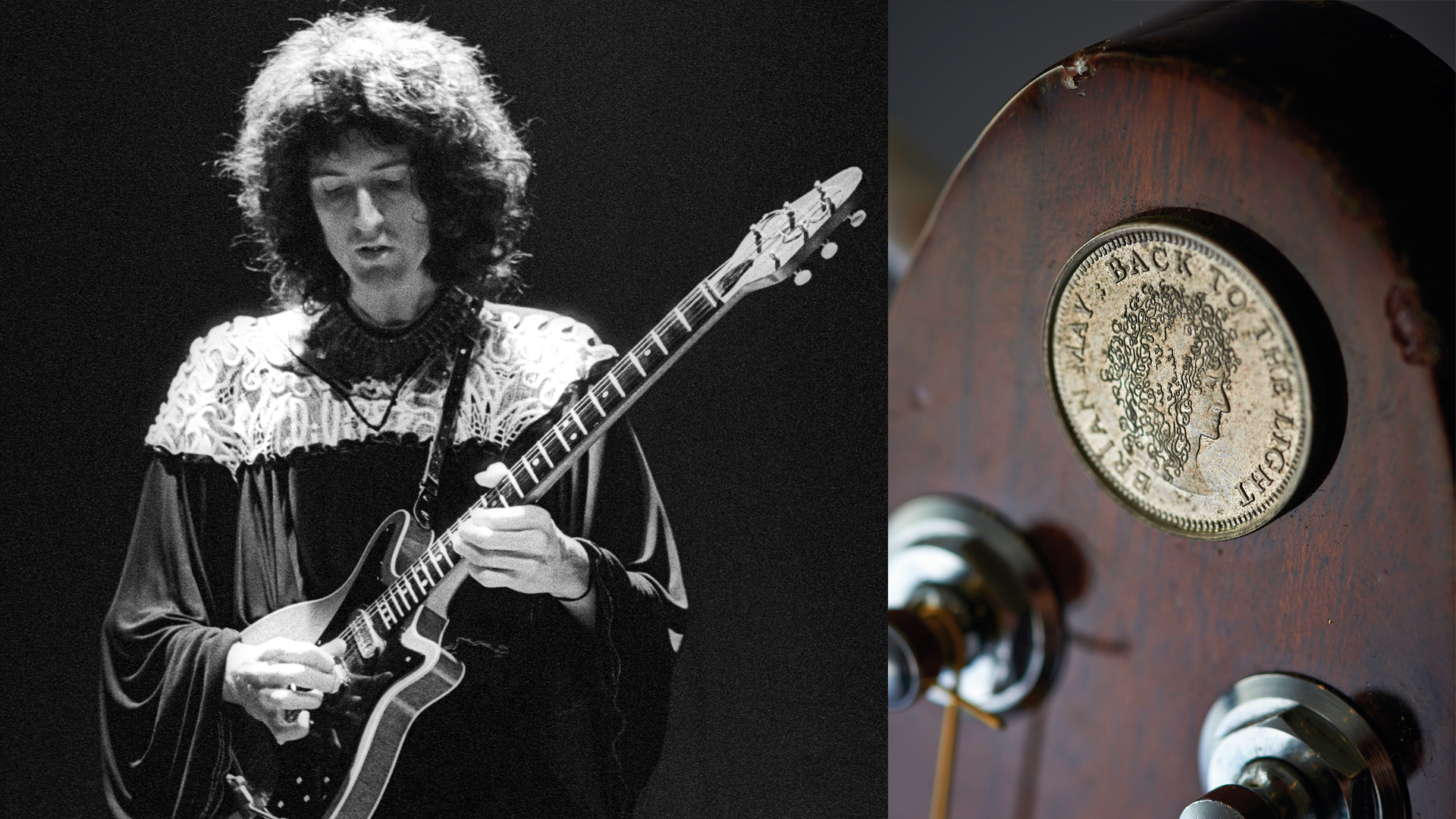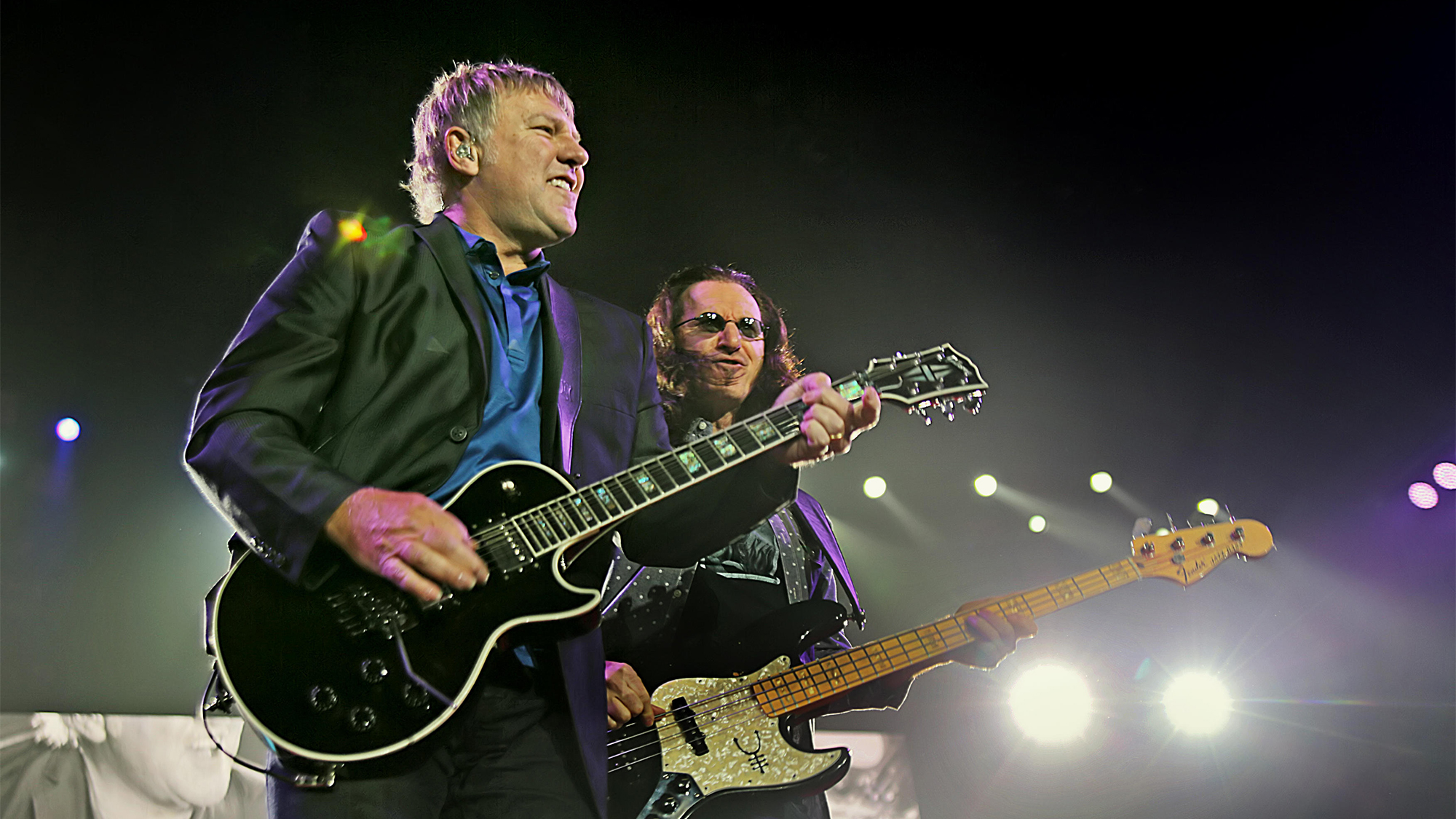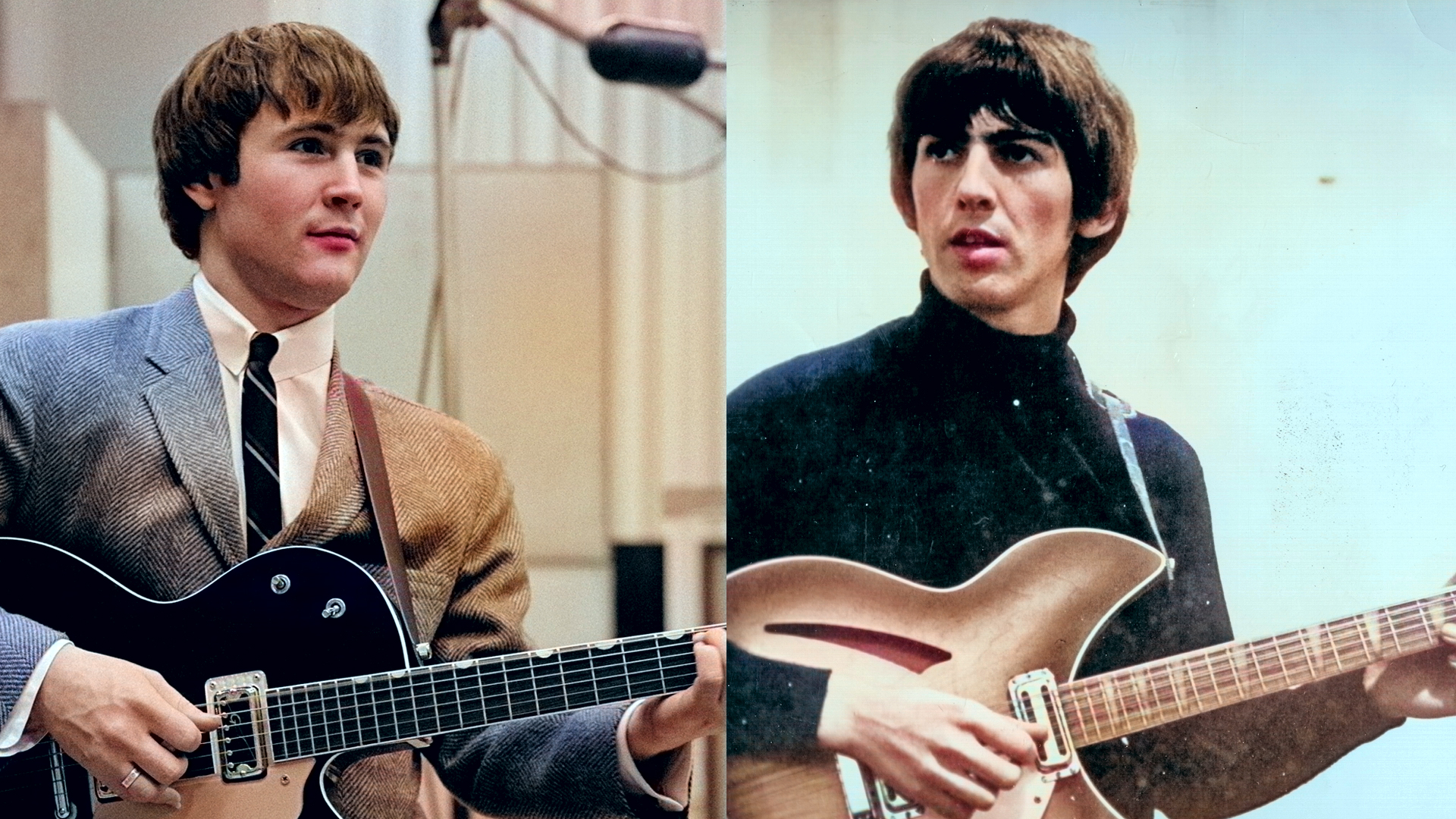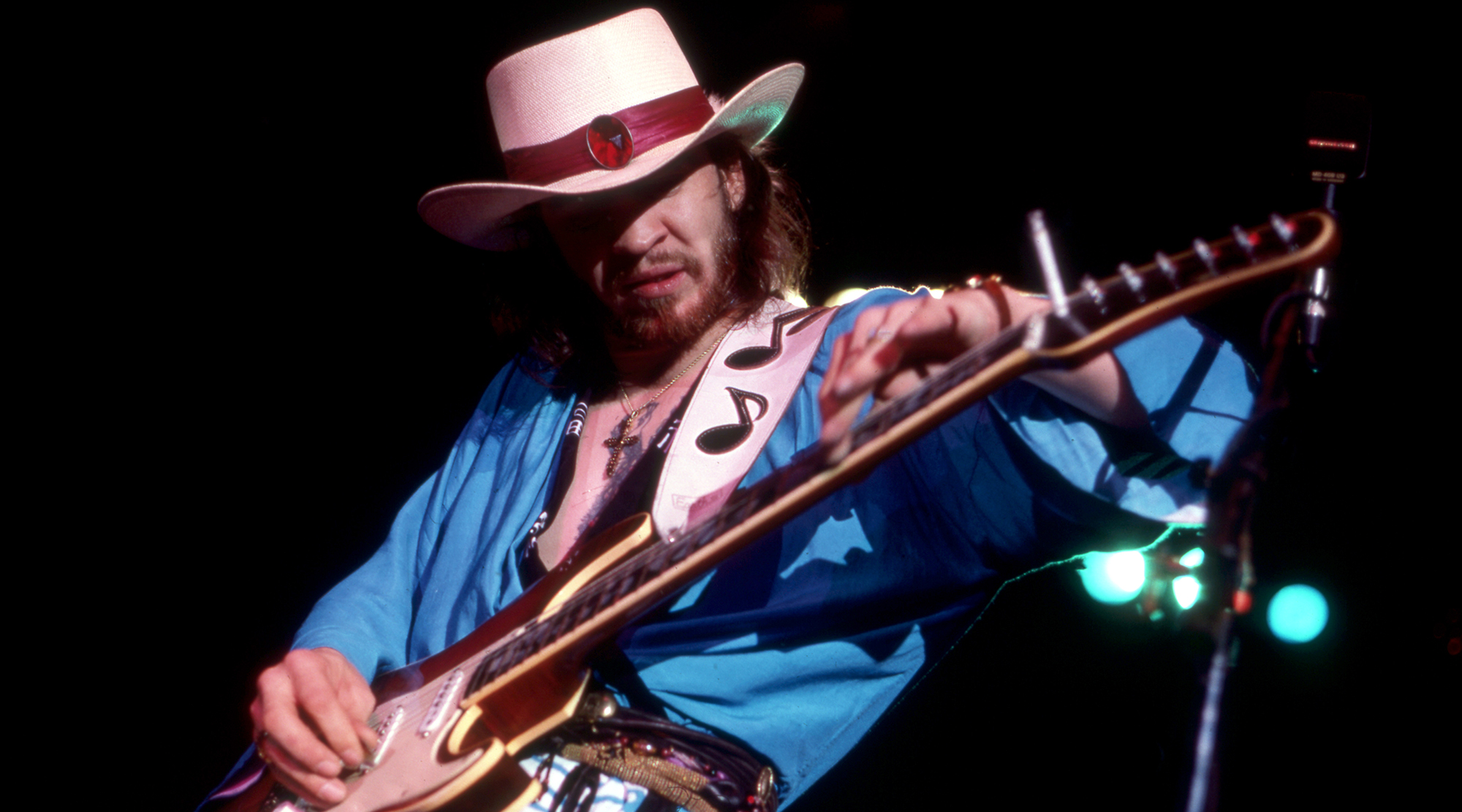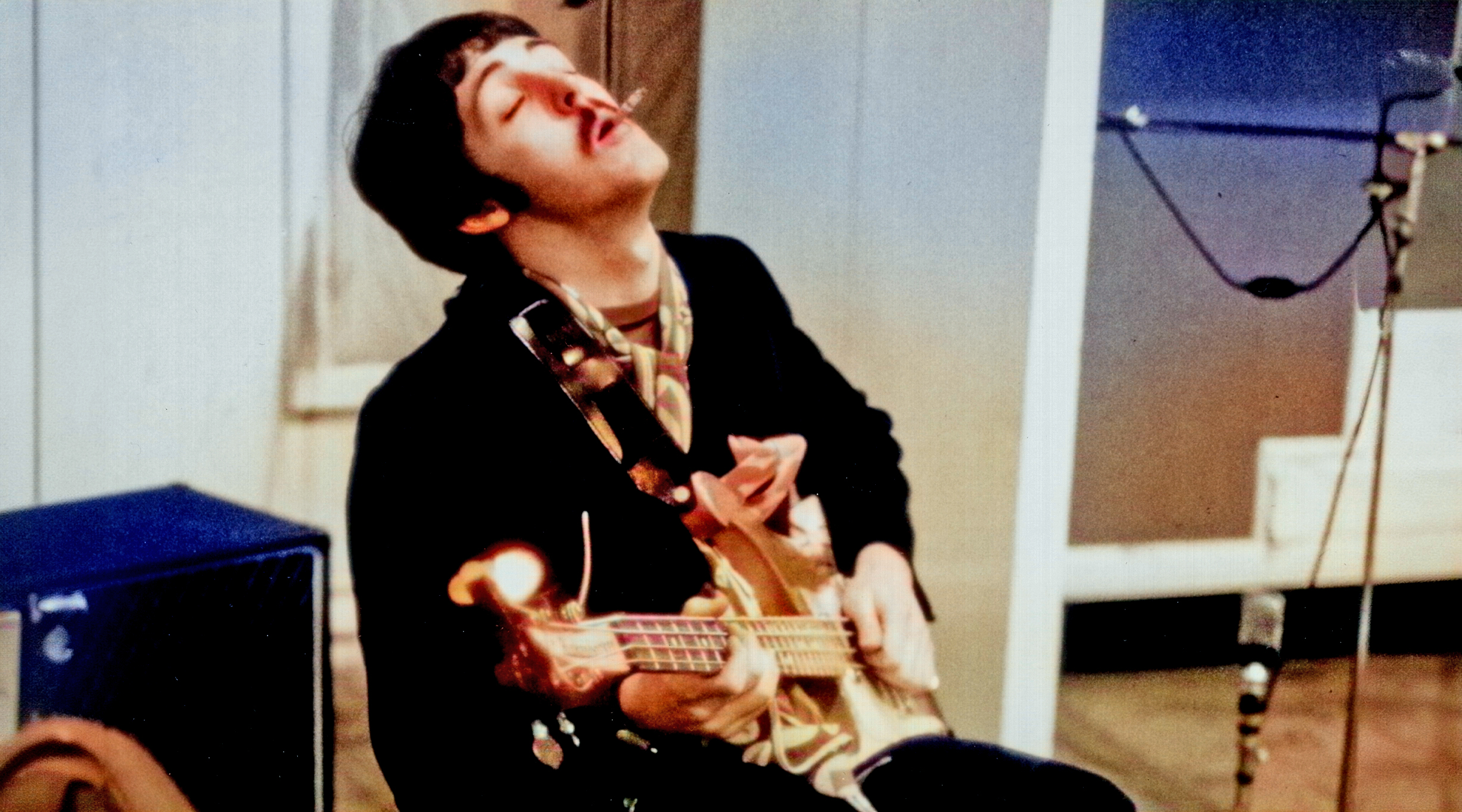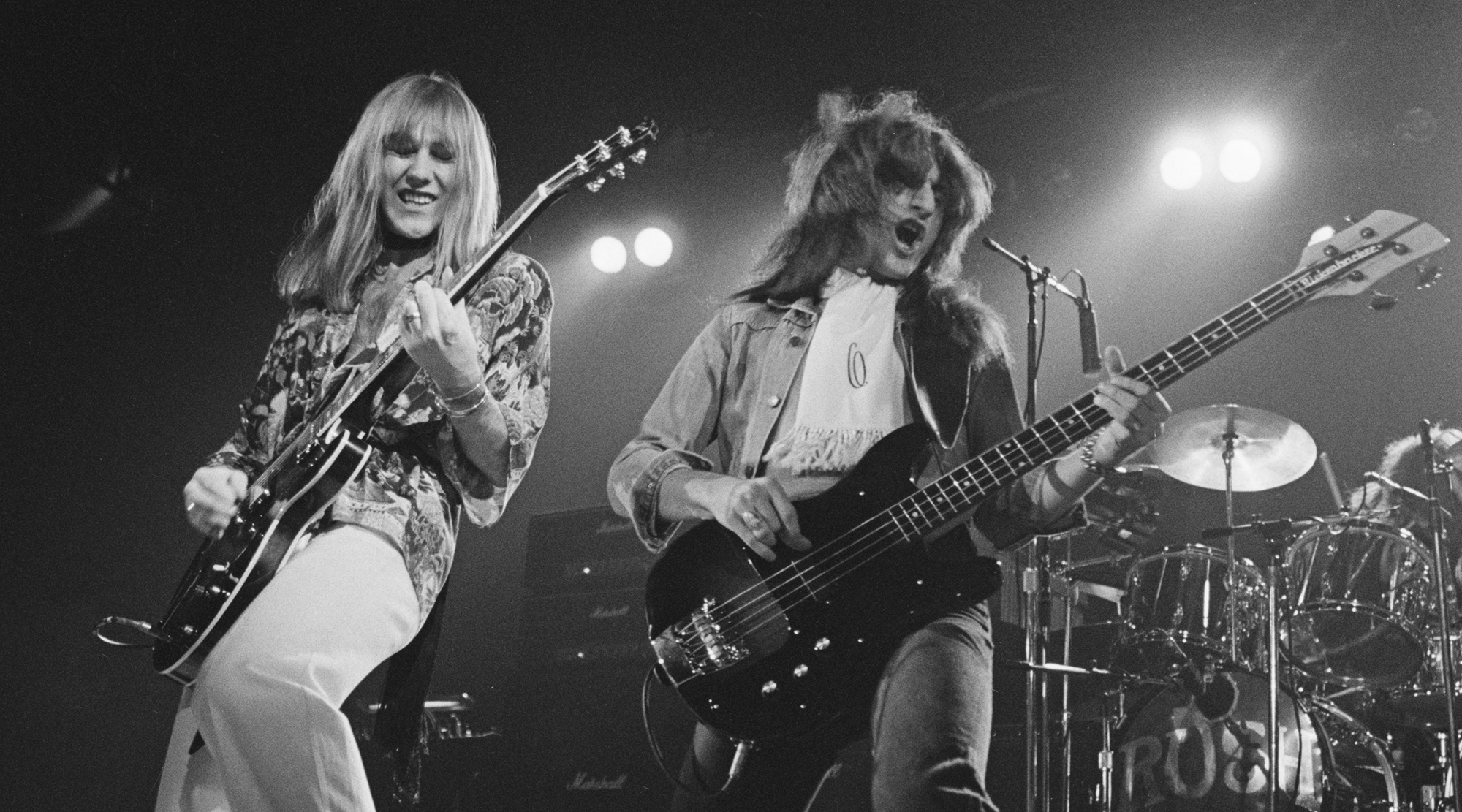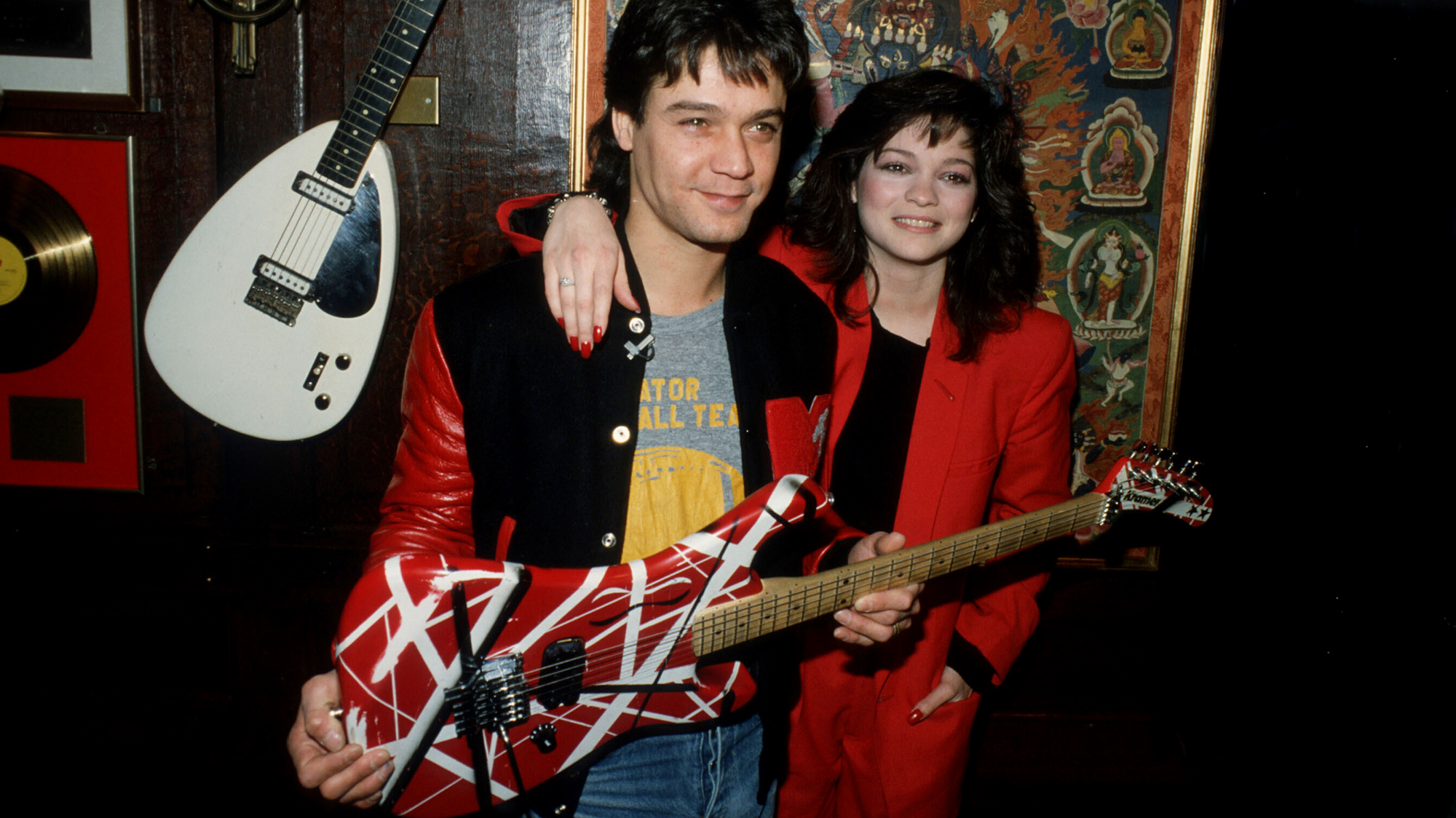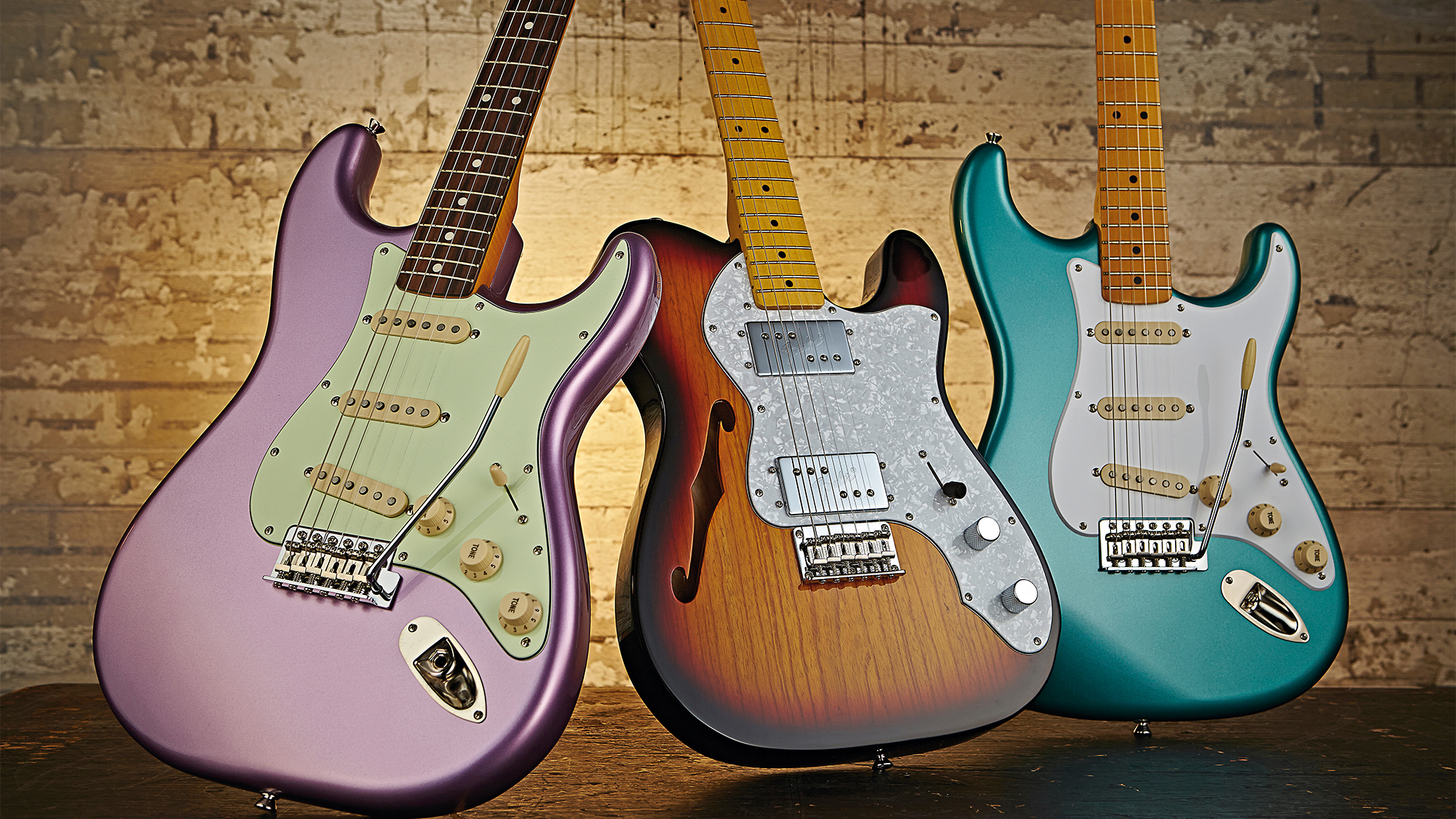“With the popularity of that record, all the aspiring guitar players wanted a Les Paul”: Guns N’ Roses producer Mike Clink says Slash made the Les Paul cool again
Despite the fact that Slash's original Les Paul of choice wasn't actually a Gibson, the man behind the desk for Appetite for Destruction and Use Your Illusion says that the band’s popularity helped put the Les Paul-into-a Marshall equation back in vogue
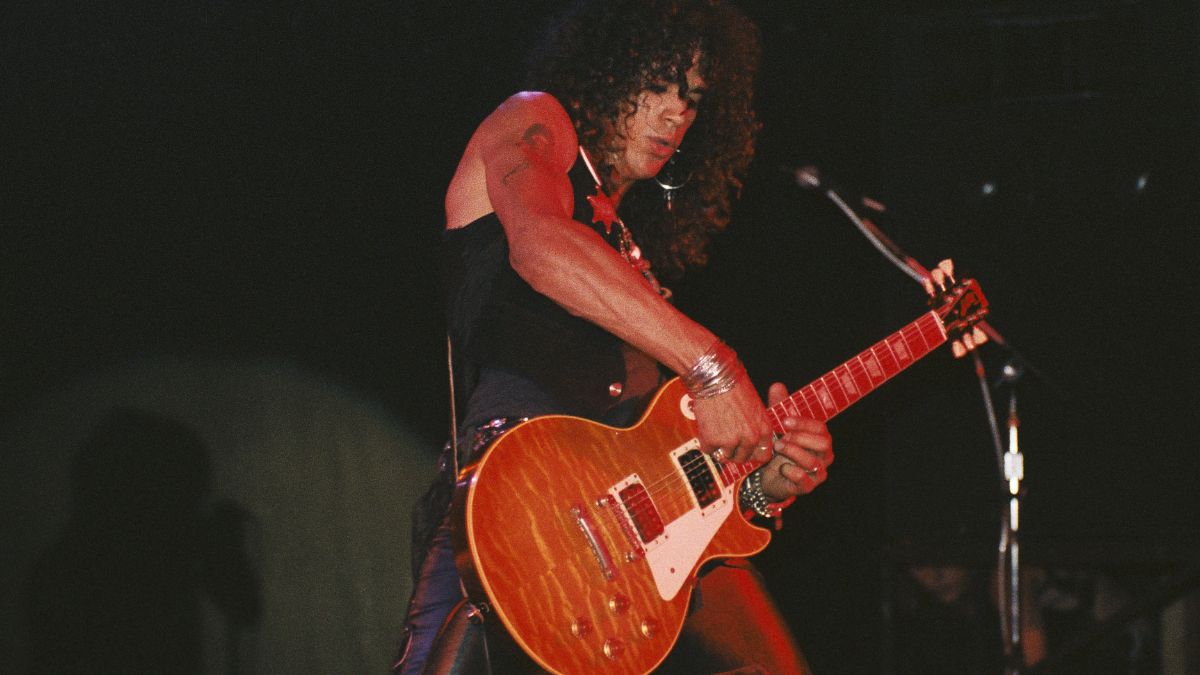
By the late-80s, Kramer, Charvel, and Jackson had established something of a stranglehold on the electric guitar market, but Guns N’ Roses producer Mike Clink believes that Slash – via the band's 1987 debut album, Appetite For Destruction – helped tilt the balance back in Gibson’s favor.
Guitarists like Eddie Van Halen, Mick Mars, and Randy Rhoads, very much the poster boys of '80s guitar, had budding guitar players all over the world drooling over their preferred models. As such, the Les Paul, strongly associated with the ‘60s blues rock movement, fell out of fashion with younger musicians.
In a new interview with Guitar World, Clink explains how Appetite For Destruction created a whole new appetite for Les Pauls.
“It’s a special guitar that clearly means a lot to him. That’s his baby,” he said of Slash's original Les Paul.
“When we did Appetite, it was that Les Paul into a Marshall. With the popularity of that record, all the aspiring guitar players wanted a Les Paul. I feel like he did a lot to bring the Gibson Les Paul back – not that it necessarily ever went away, but there was a big rise in popularity after [the band's] debut.”
Appetite for Destruction was released in July 1987 and catapulted the band to stratospheric success. It still holds huge sway today – Sweet Child o’ Mine, since Spotify’s relatively recent launch in 2006, has accumulated well over a billion hours of playtime.
Tone-wise however, its success went against the current.
Get The Pick Newsletter
All the latest guitar news, interviews, lessons, reviews, deals and more, direct to your inbox!
“At the time there were all these hair bands playing other brands in competition with Gibson,” Clink continues. “When Guns N’ Roses broke, guitar players started saying ‘I need that tone: a Les Paul into a Marshall!’ The success of that record brought those guitars back into mainstream popularity.”
Ironically, the Les Paul that was used extensively on the album wasn’t even a Gibson at all – it was a Kris Derrig-built replica.
The luthier was based out of MusicWorks, a guitar store located in Redondo Beach, California. He’d constructed the ‘59 Les Paul replica with highly figured book-matched maple, notably without the cherry-tinted edges of the originals.
Its inherent tonal magic came from a pair of Seymour Duncan Alnico II humbuckers with black-and-white “zebra” coils and some vintage electronics that Derrig sourced from the shop.
But the minor detail of the guitar not actually being a Gibson didn’t bother the firm, which duly reaped the rewards of the album’s popularity.
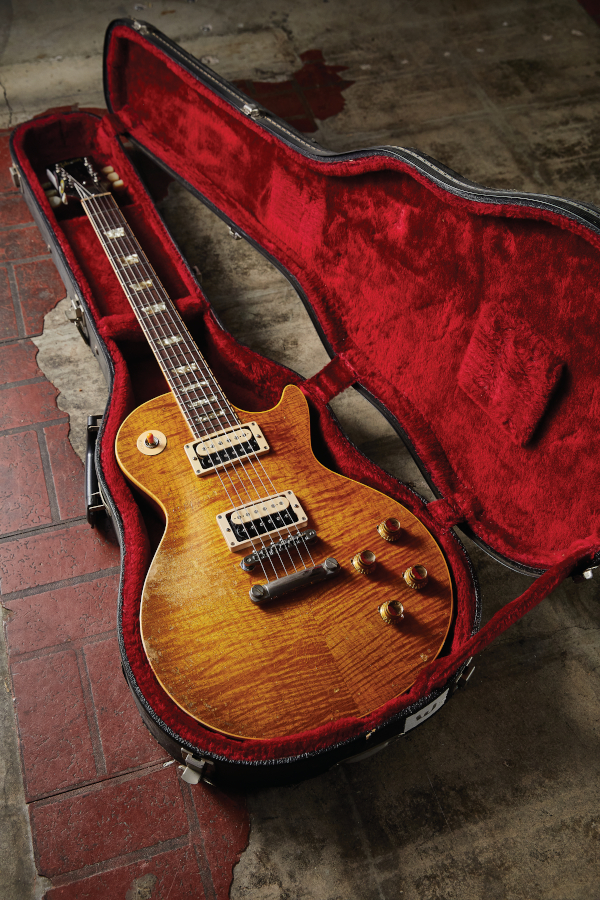
Slash officially joined the Gibson family in 2010, working with the multi-faceted gear brand to recreate the Derrig Les Paul and, this time, stamp the Gibson name on its headstock.
“Getting the Derrig was an interesting sort of perfect storm,” Slash recalls. “I went from having no identifiable sound during the basic tracks for Appetite to getting this guitar, with these particular pickups, played through a particular rented Marshall amp. All those contributing factors made for a really great guitar sound that has served me ever since.”
Those Seymour Duncan humbuckers would later become the template for Slash's signature pickups, with the Marshall head, as Clink details, a Frank Levi mod.
“He was not doing well, but had continued doing mods for friends of mine. The amps he worked on are still around and still exist. He was only doing those mods for friends and special people.”
A freelance writer with a penchant for music that gets weird, Phil is a regular contributor to Prog, Guitar World, and Total Guitar magazines and is especially keen on shining a light on unknown artists. Outside of the journalism realm, you can find him writing angular riffs in progressive metal band, Prognosis, in which he slings an 8-string Strandberg Boden Original, churning that low string through a variety of tunings. He's also a published author and is currently penning his debut novel which chucks fantasy, mythology and humanity into a great big melting pot.
"I thought, 'Jeez, how the hell did he do that?'" Phil Manzanera on the tone, tuning and technique of his teenage friend David Gilmour
“I felt so crestfallen. I wanted to throw my guitar away.” Alex Lifeson on the gig that made Rush feel like they’d made it — and how one audience member brought them crashing down to Earth


